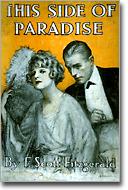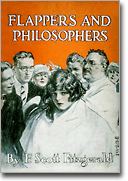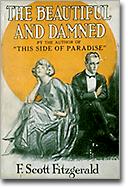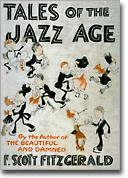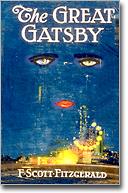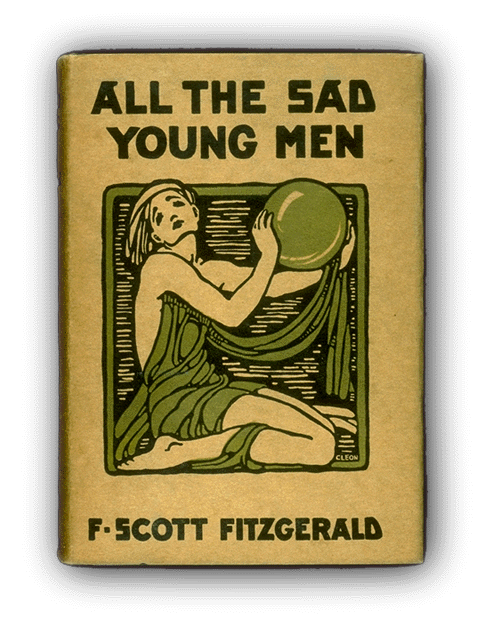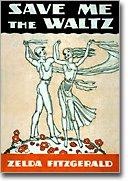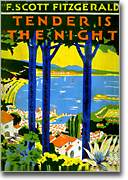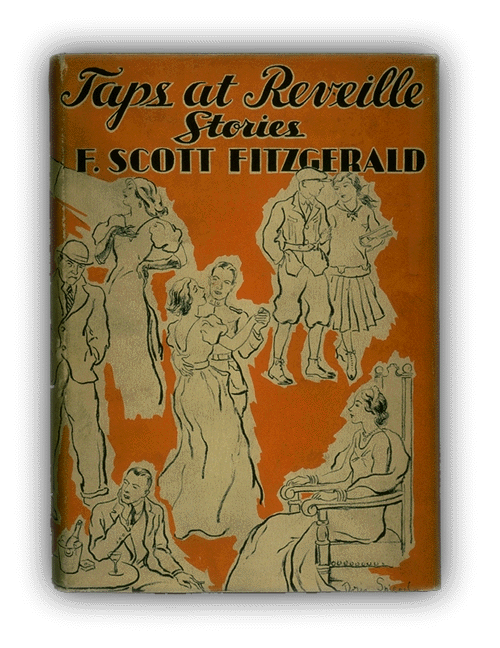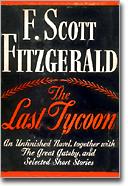
The Crack-Up, ed. Edmund Wilson. New York: New
Directions, 1945. Includes 'Echoes of the Jazz Age,' 'My Lost City,'
'Ring,' ' "Show Mr. and Mrs. F to Number--," ' 'Auction - Model 1934,'
'Sleeping and Waking,' 'The Crack-Up,' 'Handle with Care,' 'Pasting It
Together,' 'Early Success,' selections from the Notebooks, and letters.
|
In 1935, at the age of thirty-nine,
Scott (his circumstances dire and quickly becoming worse) entered a
long period of depression. Virtually every aspect of his life collapsed.
He worried constantly about Zelda. Though she had periods of improvement,
overall she got worse instead of better, a process both sad and frightening,
and one wholly beyond his control. He paid endless medical bills,
continually wrote letters to Zelda's doctors and family about her illness,
and answered friends' inquires about her with little hope. He
reluctantly faced the possibility that he and Zelda might never be able
to live together again. Even though their relationship was at times
a mutually destructive one, Scott’s loss of Zelda’s companionship was
immeasurable. He mourned her lost vitality and his own. Bills continued
to pile up, money kept getting harder to earn, and Scott, placing himself
under additional strains, borrowed against future work. He had
somehow endured all his previous disappointments and frustrations, but
with his depression came a loss of emotional intensity, a loss of all
feeling save worthlessness, and this was beyond all endurance. Fearing
that he would never again be able to write, his collapse of identity was
complete. It was at this point that Scott withdrew to a cheap hotel
in Hendersonville, North Carolina, and, while living off apples and tin
cans of meat, wrote the three essays that make-up "The Crack-up" sequence:
"The Crack-up," "Pasting It Together," and "Handle with Care," published
in the February, March, and April issues of Esquire in 1936. In
the first essay, Scott wrote that his “nervous reflexes” had been broken
by “too much anger and too many tears,” that he “was always saving or being
saved,” an understandable situation perpetuated by the continued crisis
brought about by Zelda’s illness and his own drinking (though he was careful
in the essay to deny any recent drinking). “I began to realize,”
he went on in "The Crack-up," that “my life had been a drawing on
resources that I did not possess, that I had been mortgaging myself physically
and spiritually up to the hilt” (71-72). In "Handle With Care,"
Scott deftly summed up the emotional tone, or tonelessness, of his depression:
". . . I had developed a sad attitude toward sadness, a melancholy attitude
toward melancholy and a tragic attitude toward tragedy—”; he went on to
say that he “had become identified with the objects of [his] horror or
compassion.” This loss of objectivity and motivation, he decided,
helped to explain why it had become so hard for him to write: “identification
such as this spells the death of accomplishment . . . . I could no longer
fulfill the obligations that life had set for me or that I had set for myself
. . . “ (80-81). --Cathy W. Barks
|



